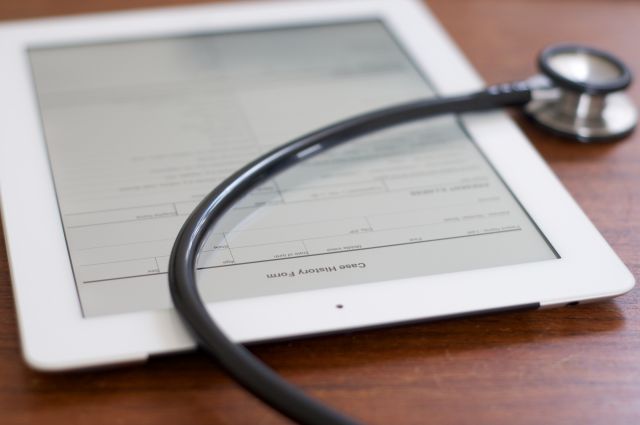In the past, your health history was tracked on paper only, but that's no longer the case. Doctors and hospitals across the country are making things easier for you, turning those paper medical records of yesteryear into something more practical in the 21st century: the electronic health record. Here are five facts to help you understand more about it.
Electronic health records are the future. That's right. Many hospitals and doctors’ offices have already implemented electronic health records (EHRs) into their administrative systems. EHRs go beyond standard clinical data collected in a provider’s office and can offer a broader view of your care:
- Syncs your health history, diagnoses, medicines, treatment plans, immunization dates, allergies, radiology images, and lab and test results within an online portal
- Allows all your doctors to access your record, making it easier for them to share information and coordinate your care
- Helps you create a personal, secure account to review all of your health information
- Gives providers evidence-based tools to help them make smarter decisions about your care
And the federal government encourages these changes by incentivizing healthcare practitioners and facilities to go electronic with their recordkeeping.
They’re different than your personal health record (PHR). You control and maintain what's in your PHR. You can use it to collect, track and share past and current information about your health or the health of someone you're caring for. Whether you track this health information on paper -- or online -- is completely up to you, but it's becoming more popular in the form of an electronic health data application, which may be linked to your EHR. With an EHR, your doctor (or hospital) controls the information. They may be stored at a doctor's office, a hospital, an insurance company, or an employer.
You get better care. With all your medical information in one place, your doctor has a more complete and organized view of your health. EHRs help your doctors stay current with your conditions and treatments and track your progress over time. It also alerts them when you’re due for preventive care. They even help prevent prescription errors, guarding you against incorrect dosages and harmful interactions with other medicines you may be taking. Ultimately, it’s a more effective way to help your doctor help you.
EHRs save you money. EHRs can help you save cash. They make it less likely that doctors will order duplicate or unnecessary tests. They also make practices more efficienct, reducing administrative costs involved with transcribing notes, handling charts and billing. Those savings reduce overall healthcare spending—and the costs passed on to you.
You’re not left out of your care. EHRs are designed to be accessed by everyone involved in your care, including you. Forgot something your doctor said during your visit? Your doctor can share notes from your visit with you, give you self-care or follow-up instructions and point you to web resources. An EHR can even help you schedule an appointment, send questions to your doctor via email and much more.






